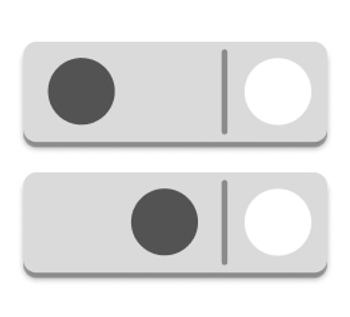Exchange
Stockholm, Sweden - Wenner Gren Institute - Department of Molecular Biosciences

Martin Jastroch studies mitochondria and cellular energy metabolisms. He wants to understand how thermogenesis evolved and how an increased understanding regarding this fundamental process can be applied to develop novel medical intervention strategies directed towards curing metabolic diseases. His groups work integrates research on whole animal metabolism with cellular and mitochondrial bioenergetics. It aims to identify molecular mechanisms and their significance for systemic energy homeostasis and metabolic disease.

Thomas Opitz works in stochastic geometry and in spatial and spatiotemporal statistics with a view towards extreme values. His research includes applications to meteorological and climatic processes (precipitation, wind speeds, temperatures), spatial and spatiotemporal modeling of plant and animal species, but also analysis of extreme values and risk.
Past
INRA Biostatistics and Spatial Processes, Avignon: Hugo Nam, Fall 2019
British Antarctic Survey, Cambridge: Archita Harathi and Alex Stankard, Summer 2019
Wenner Gren Institute, Stockholm: Jacob Fyda and Connor Spencer, Summer 2019
MPI for Evolutionary Anthropology, Leipzig: Megan Green, Kyle Bensink and Anuraag Bukkuri, Summer 2018
Upcoming
Mentoring
Since 2018 I have mentored about twenty students in a variety of activities. My area of research lies within hyperbolic and systolic geometry. Undergraduate students interested in independent study or working on a research project should feel free to email me. I am also currently working on a software project for games inspired by Linear Algebra and am always looking for students to help me develop new games. Helpers for my outreach program in geometry are equally welcome. A short summary can be found below.
Hyperbolic geometry and Riemann surfaces

The hyperbolic plane is a space of constant negative curvature minus one, where different rules than in Euclidean space apply for geodesics, the geometry of polygons and the area of disks. A hyperbolic surface can be seen as a polygon in the hyperbolic plane with identified sides. We call such a surface a Riemann surface. Many questions about Riemann surfaces are still open or under study. Hyperbolic geometry is used in the theory of special relativity, particularly Minkowski spacetime.
Systolic geometry
 |
A systole of a surface is a shortest non-contractible loop on a surface. Every surface has a genus \( g \), where informally \( g \) denotes the number of holes. Surprisingly given any surface of fixed genus \( g \) and area one, the systole can not take a value larger than \(c \cdot \frac{\log(g)}{ \sqrt{g}} \), where \( c \) is a constant. A large number of families of short curves on surfaces satisfy this upper bound and example surfaces can be found among the hyperbolic Riemann surfaces. |

Only four out of ten high school students feel engaged in class (Gallup, 2015) and half of the students feel bored and tired. Especially concerned by this trend is the subject math. A very recent idea to solve this problem is the gamification of math. Following this approach we develop several computer games that teach high school and college students math in a fun and open setting. Here we focus on Linear Algebra whose mastery is essential for almost all basic sciences.
The games are puzzle games which can be solved using methods from Linear Algebra. To focus on the algorithmic side instead of complicated calculations we replace the real numbers by a simpler number system which in these games is represented by pieces on a Go board. The games will be accompanied by a detailed description of the mathematics behind these games and its application.
Past
Undergraduate Research
- Colton Carlson and Aaron Lit: Harmonic functions on a certain planar domain, (62 pages), Winter 2019
Software Project
- Linear Games: games teaching algorithms from Linear Algebra, developed with two teams from the DALI Lab at Dartmouth College, Spring 2019 and Winter 2020
Outreach in Geometry
- Qirong Li: Pentagonal tilings, Poster, Spring 2018
Reading Courses / Qual preparation
- Real Analysis, Winter 2020
- Measure Theory and Complex Analysis, Summer 2019
- Complex Analysis, Summer 2019
- Abstract Algebra, Spring 2018